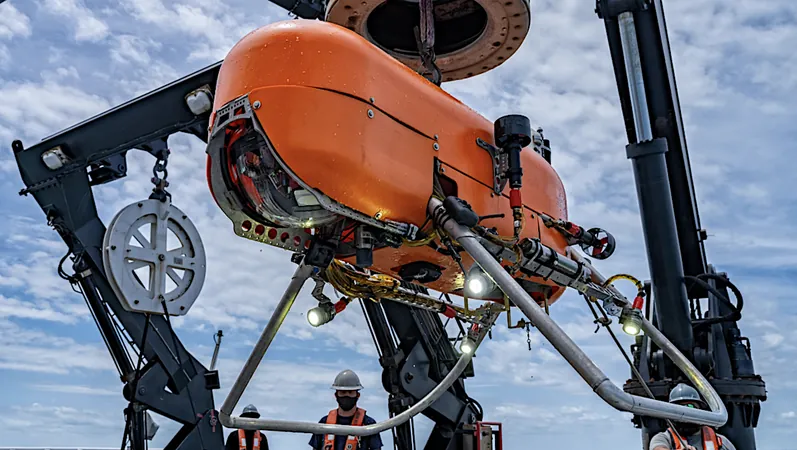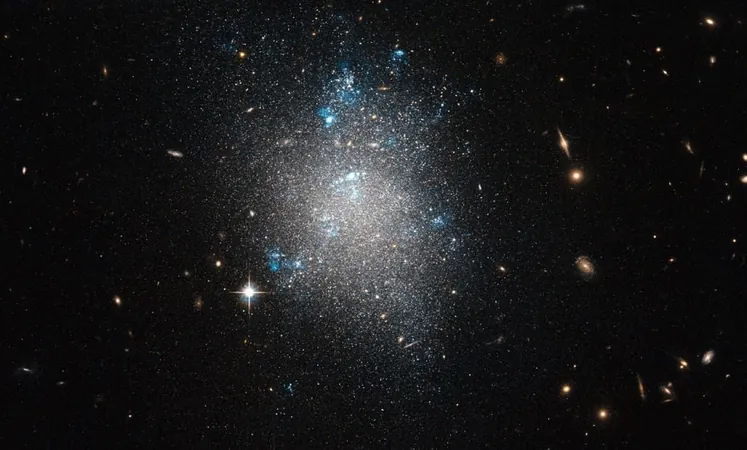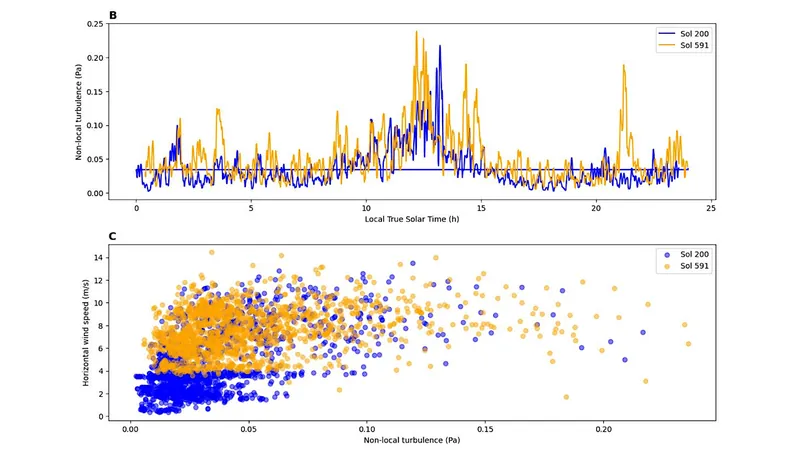
Uncovering the Deep: Revolutionary AUV Ventures into Mariana Trench to Discover Critical Minerals
2025-07-13
Author: Siti
A New Frontier in Ocean Exploration
In a groundbreaking expedition, a cutting-edge autonomous underwater vehicle (AUV) has ventured into the uncharted territories of the deep ocean, particularly the Mariana Trench, advancing our understanding of these mysterious waters. This ambitious mission, spearheaded by the Ocean Exploration Cooperative Institute (OECI) at the University of Rhode Island, sees support from notable partners including NOAA, BOEM, and USGS.
Mapping the Abyss: The Role of Orpheus Ocean
Crafted by the innovative New England startup Orpheus Ocean, this AUV is not just any underwater robot; it's equipped to explore depths of up to 11,000 meters (6.8 miles). Operating in some of the globe's least understood regions, the AUV's primary mission has been to locate and study polymetallic nodules—valuable mineral deposits that are gaining attention for their rich geochemical properties.
The Quest for Critical Minerals and Marine Ecosystems
As humanity's demand for critical minerals skyrockets, understanding these hidden treasures in the deep sea has never been more urgent. However, accessing these resources is fraught with challenges, including extreme depths, frigid temperatures, and immense pressures. The recent findings of polymetallic nodules at a depth of 5,645 meters near the Northern Mariana Islands mark a significant milestone in this ongoing quest.
Data Collection and Future Directions
"Collecting comprehensive data on deep-sea mineral deposits and the ecosystems that surround them is paramount," states Adam Soule, OECI’s executive director. With data being scarce, the OECI's collaboration with federal entities is vital for developing sophisticated tools for deep-sea exploration. Their joint efforts have already begun to elevate our understanding of where these critical mineral resources lie.
Innovative Technology at Work
The AUV's recent dives were pivotal—capturing images of polymetallic nodules that were previously unseen. Using advanced technology, Orpheus provided the first direct insights into these promising deposits, refining resource management strategies for NOAA, USGS, and BOEM.
Public-Private Partnerships in Ocean Science
Aurora Elmore, NOAA Ocean Exploration program manager, emphasizes the importance of combining public and private efforts to responsibly manage ocean resources. Their collaborative expeditions aim to enhance knowledge of the seabed, with each mission uncovering more about the geological settings of potential mineral deposits.
Forging a New Path for Ocean Exploration
Orpheus Ocean was founded in 2024 with a mission to revolutionize deep-sea exploration. The AUV's innovation is rooted in years of collaboration with institutions such as the Woods Hole Oceanographic Institution and NASA’s Jet Propulsion Laboratory, and it represents a significant leap from prototype to operational model.
The Future of Ocean Exploration Starts Here
Since its inception in 2019, OECI has relentlessly pursued advancements in ocean science. Their partnerships are crucial for fostering a skilled workforce and ensuring sound policy decisions regarding ocean management. Their collective approach not only addresses national priorities but also promises to unveil the secrets of the deep sea for generations to come.
Final Thoughts
The efforts of OECI and Orpheus Ocean signify a step forward in the quest to explore the depths of our oceans. As technology evolves and collaborative efforts continue, we stand on the brink of uncovering invaluable resources that hold the key to our future.




 Brasil (PT)
Brasil (PT)
 Canada (EN)
Canada (EN)
 Chile (ES)
Chile (ES)
 Česko (CS)
Česko (CS)
 대한민국 (KO)
대한민국 (KO)
 España (ES)
España (ES)
 France (FR)
France (FR)
 Hong Kong (EN)
Hong Kong (EN)
 Italia (IT)
Italia (IT)
 日本 (JA)
日本 (JA)
 Magyarország (HU)
Magyarország (HU)
 Norge (NO)
Norge (NO)
 Polska (PL)
Polska (PL)
 Schweiz (DE)
Schweiz (DE)
 Singapore (EN)
Singapore (EN)
 Sverige (SV)
Sverige (SV)
 Suomi (FI)
Suomi (FI)
 Türkiye (TR)
Türkiye (TR)
 الإمارات العربية المتحدة (AR)
الإمارات العربية المتحدة (AR)